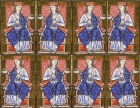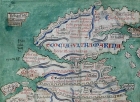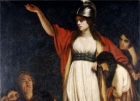Developing enquiries
Developing child led enquires encourages children to be active learners by raising their own questions which supports a whole classroom. Good enquiry questions support higher order skills such as: analysing, evaluating, researching, interpreting, critical thinking and reaching a final judgement or conclusion.
Sort by:
Date (Newest first) | Title A-Z
Show:
All |
Articles |
Podcasts |
Multipage Articles
-

A classroom museum
ArticleClick to view -

A creative Egyptian project
ArticleClick to view -

A museum in the classroom: Learning history from objects
ArticleClick to view -

Ancient Sumer
ArticleClick to view -

Anglo-Saxon Women
ArticleClick to view -

Assessment and Progression without levels
ArticleClick to view -

Bringing the Civil War to life in Somerset
ArticleClick to view -

Britain's settlement by Anglo-Saxons and Scots
ArticleClick to view -

Case Study: Hit the net!
ArticleClick to view -

Children's Thinking: Developmental psychology and history education
ArticleClick to view -

Children's thinking in archaeology
ArticleClick to view -

Chronology and local history: Year 6
ArticleClick to view -

Churches as a local historical source
ArticleClick to view -

Creating a school museum
ArticleClick to view -

Creating the 'creative history' website
ArticleClick to view -

Curriculum planning: How to write a new scheme of work for history
ArticleClick to view -

Developing enjoyable historical investigations
ArticleClick to view -

Early Islamic civilisation
ArticleClick to view -

Eweka's story: Benin and Big Picture History
ArticleClick to view -

From Champion to Hero: Engaging Pupils in a study of significant Olympians
ArticleClick to view

